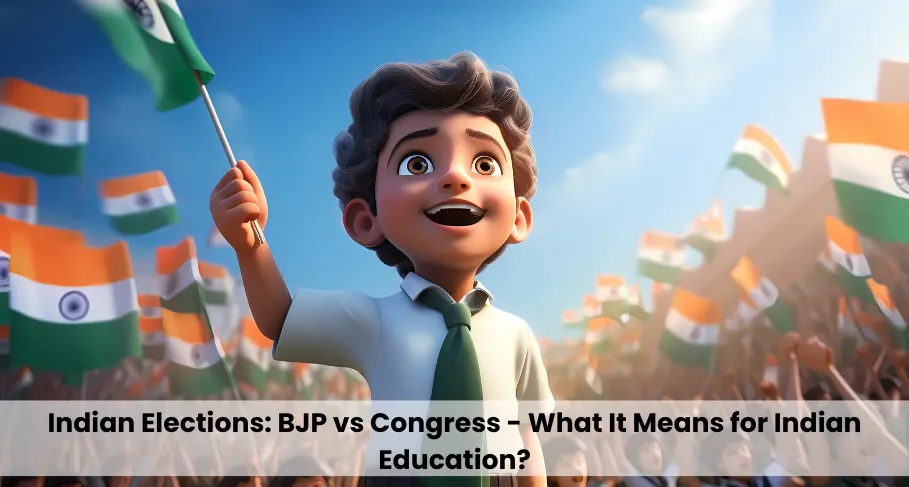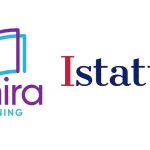India is the world’s largest democracy. The country recently witnessed general elections, a high-stakes political battle for the coming five years. Along with other players, the two leading contenders, the Bharatiya Janata Party (BJP) and the Indian National Congress (Congress), competed for supremacy. Historically, both parties have significantly contributed to the educational landscape of India. Their policies and reforms have defined India’s education sector.
This article explores how the electoral outcomes could shape India’s educational landscape.
After India gained independence, the education system underwent massive reforms. The Congress party controlled Indian politics for the first few decades and established the foundation of contemporary Indian education. Congress was also the driving force behind historic initiatives like the National Policy on Education (NPE) in 1968 and 1986 and the foundation of various central universities and IITs. The main goals then were increasing literacy rates and ensuring increased educational opportunities.
The Bharatiya Janata Party (BJP) emerged as a prominent political party during the 1990s. The party’s distinct emphasis on instilling nationalism within the educational framework is what sets it apart. After the party came to power in 2014, the BJP has worked hard to redefine the educational sector. The party introduced numerous changes, especially within the curriculum, to foster cultural esteem and a strong national identity. The reforms introduced by the BJP aim to harmonise modern educational needs with the rich heritage of India’s traditional knowledge systems.
Let’s look into the Educational Policies of each party:
Congress’s Educational Policies
The Congress party has a long history of governance and a legacy of significant contributions to the Indian education system. Traditionally, their approach has been more inclusive, focusing on broad-based development. Let’s look at the key policies under the Congress Party:
Right to Education Act (RTE) 2009
The Right to Education Act has improved the educational landscape of the nation to a large extent. One of the most prominent policies in the history of the Indian education system is the RTE Act, which made education an accessible and fundamental right for children aged 6 to 14. It ensures free and compulsory education for all children, significantly improving enrollment rates.
Higher Education Expansion
Historically, Congress governments have focused on expanding higher education. A few key milestones are the establishment of new IITs, IIMs, and central universities under Congress’s governance, which aimed to improve and increase access to quality higher education across the country.
Equity and Inclusion
Congress worked on creating policies that reduce disparities in education. These include scholarships and reservations for marginalised communities, mid-day meal provision to improve child nutrition and school attendance, and other initiatives to increase female literacy levels and education for all.
Innovation in Education
The Congress Party has supported the establishment of bodies like the National Innovation Council to foster innovation and research in education. Their policies aim to integrate traditional academic education with vocational training and modern skills.
Educational Policies Laid by the BJP
BJP’s educational strategy is based on the ideology of nationalism and culture revival. Led by Shri Narendra Modi, the BJP government has implemented several significant reforms and initiatives, including:
NEP 2020, the National Education Policy
NEP 2020 is a transformational reform that harmonises the Indian education system. It strongly emphasises broad, multidisciplinary education, flexibility in subject choice, and essential skills like creativity and critical thinking. Aligned with the party’s focus on cultural roots, the New Education Policy also supports using mother tongues or local languages as the medium of instruction in the early years of schooling.
Skill Development
Vocational training and skill development are on the BJP’s top priority list. The government has launched various programs, such as the Pradhan Mantri Kaushal Vikas Yojana (PMKVY), which aims to bridge the skills gap between education and employment by equipping youth with industry-relevant training and skills and generating an employable workforce.
Digital Education
BJP launched the popular Digital India campaign, which advocates using technology in education. Various eLearning platforms like DIKSHA and SWAYAM aim to increase accessibility to quality education and bring inclusivity to education. Additionally, digital classrooms and online learning have increased under the party’s rule.
Value-based Education
BJP emphasises education based on moral principles, which are reflected in their educational reforms. The curriculum has new additions like yoga, traditional Indian knowledge, and ethics to instil a sense of moral obligation and cultural pride among the young generation through their schooling years.
Implications for the Future
The future of the Indian education system solely depends on the policies and governance of the party in power. Each party takes a different approach and has strengths and weaknesses. Their impact on the education sector can be profound.
Quality vs. Accessibility
BJP focuses on improving the quality of education through NEP 2020, as it entails holistic and multidisciplinary education. However, it requires successful implementation. On the other hand, Congress focuses on accessibility and inclusivity. Their approach ensures access to education for marginalised sections; however, quality enhancement can be challenging.
Cultural vs. Secular Education
The BJP’s approach to education emphasises culture revival and a sense of national pride but risks alienating minority communities. The Congress, on the other hand, has a secular approach and aims to promote harmony and inclusivity but lacks the cultural connection that the BJP seeks to establish.
Technological Advancements
BJP’s Digital India Campaign promotes digital education and has redefined marginalised areas, making education more accessible, especially in remote areas. However, adequate digital infrastructure and overcoming the digital divide remain vital challenges. Congress continues to focus on expanding physical and educational infrastructure, which is relevant but does not require technological changes.
Skill Development and Employment
BJP’s emphasis on skill development aligns well with the needs of a rapidly changing job market. However, balancing this with traditional academic education is essential. Congress’s approach to integrating vocational training with academic education provides a more balanced framework but needs more robust implementation.
Conclusion
BJP and Congress reflect their broader political ideologies in the realm of education. BJP’s approach focuses on cultural revival and skill development that can lead to a modern yet traditionally rooted education system. On the other hand, Congress’s focus on inclusivity, accessibility, and expansion of higher education promises that no one will be left behind. An ideal approach for the Indian education system to thrive requires a balance between both parties’ visions. It must incorporate the strengths of both BJP and Congress policies. As India moves forward, the challenge will be to blend cultural pride with inclusivity, modern technology with traditional values, and quality with accessibility. The narrow victory margins in recent elections point towards India’s increasingly competitive political landscape. One of the vital issues, education impacting millions, is likely to be at the forefront of this political tussle. Both the Bharatiya Janata Party (BJP) and the Indian National Congress (INC) will likely adopt strategies to drive change and progress in the education sector to prove their worth to the electorate.


